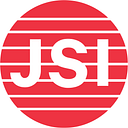A Journey to eCHIS Acceptance and Use Among Health Extension Workers: The Role of Mentorship and Supervision
Ethiopia is home to a large rural population with varying accessibility to health services. The use of information technology in community health services can offer improved access to care, increased efficiency, improved data quality and data use, and ultimately, better health outcomes. Despite its huge potential benefits, there are several challenges associated with adapting to new technology at a grassroots level.
The Electronic Community Health Information System Scale-up for Health Extension Program Improvement (eCHIS) project, launched with Ethiopia’s Federal Ministry of Health and with Children’s Investment Fund Foundation support, is digitizing community health structures across the country. eCHIS supports community health workers, known as health extension workers (HEW), and their health facilities to collect, manage, analyze, and report health data electronically. It also provides HEWs with tools and job aides to counsel clients effectively. Its implementation requires reliable electricity, internet access, high-spec tablets, training, supportive supervision, troubleshooting, and good governance. However, in many parts of the country, quite a few of those factors are not adequately available.
Adadi Ejere is one of 33 health posts in Gimbichu Woreda in the Oromia Region. Gimbichu has an estimated population of 114,632 and 23,850 households. There are two HEW in Adadi Ejere, both of whom received a basic eCHIS training in June 2021. The health post has registered 68% of the households and 62% of the family members of the community currently. Though Adadi Ejerie has used eCHIS consistently since January 2022, in the early months of its implementation, HEW witnessed firsthand some challenges in its use.
Almaz is a 25 years old HEW reporting to Adadi Ejere over these last five years. After a five-day eCHIS training, provided by JSI in June 2021, she began using the eCHIS app to support her routine household reproductive, maternal, newborn and child health (RMNCH) services.
“Before eCHIS was introduced, I heard rumors about a special device called a ‘tablet’ and the provision of health care services using it instead of the paper forms. Some of my friends and supervisors were also telling me about tablets and I was eager to see what a tablet is and how it would be possible to provide service using a tablet. For me, this was like a dream and I couldn’t imagine how this would happen. I haven’t used a smartphone or tablet,” explained Almaz
Filled with hope, Alamaz remembers her first exposure to eCHIS “Truly speaking, I was not comfortable with the training because most of the terms and contents of the training were new. During the training, I was given a tablet to practice and learned how to use it for household and member registration. I recognized that the contents in the tablet were similar to our previous paper form and this gave me some encouragement. At the end of the training, a tablet with all the necessary applications installed was given to me. After returning home, though, I was not confident in using it. The first time I tried to register a household on the tablet, I was totally lost and failed to complete the registration. Though I sometimes tried, I couldn’t use it to support my routine activities. Often, I left the tablet at home until I received support from a supervisor who helped me use it in a real environment.”
Mentorship and Supportive Supervision that Changed Almaz’s Intent to Use eCHIS
At the onset of the project, supportive supervision did not follow the initial training. However, after several months post-training and tablet dissemination, the need for ongoing mentorship to help users adapt to this new technology was recognized. By December 2021, JSI was implementing structured mentorship. Almaz was able to receive her first supportive mentorship visit from the team.
“After a while, a supervisor came to the health post and asked me whether I am using the tablet. I explained the difficulties and he showed me how to register households and members, and how to sync data. Based on the support and his guidance, I started practicing using the tablet regularly. As I continued practicing, I started understanding how the technology functions. After subsequent mentorship support and continued practice, I developed the confidence to utilize eCHIS for service provision.”
As Almaz continued using eCHIS more consistently, she developed skills to provide peer support to other HEWs. eCHIS has created greater efficiency in her day-to-day work. Many HEW, though, do find that the network problems across the country slows performance of the eCHIS app and they also describe their need for more diverse modules (e.g., on malaria, TB, data upgrades etc.) to better offer services to clients using eCHIS.
“Clients do not tolerate long waiting times while the tablet loads different forms, and sometimes there are several clients in the queue waiting for the services.” She added that the unavailability of a complete set of health extension modules has also forced her to use both paper and eCHIS to record the services she provides.
The adoption of eCHIS requires strong support and troubleshooting structure, refresher training, high-spec tablets, and maintenance. Adoption also depends on commitment of a country’s leadership, HEWs’ perceptions of the potential benefits of the technology, and ease of use of the eCHIS application, which can be supported through on-the-job mentorship. Meaningful implementation of eCHIS in our primary healthcare settings requires more investment and coordinated efforts between government agencies, partners, health service providers, and technology companies. When in place, the potential of eCHIS and its ability to offer greater support to Ethiopia’s frontline healthcare workforce will translate to improved access to quality health care for all Ethiopians.
e-CHIS is a five-year project that builds on the Government of Ethiopia’s efforts to leverage the power of digital technology to improve the coverage and quality of healthcare in Ethiopia. The project is implemented by JSI and is funded by the Children’s Investment Fund Foundation.
